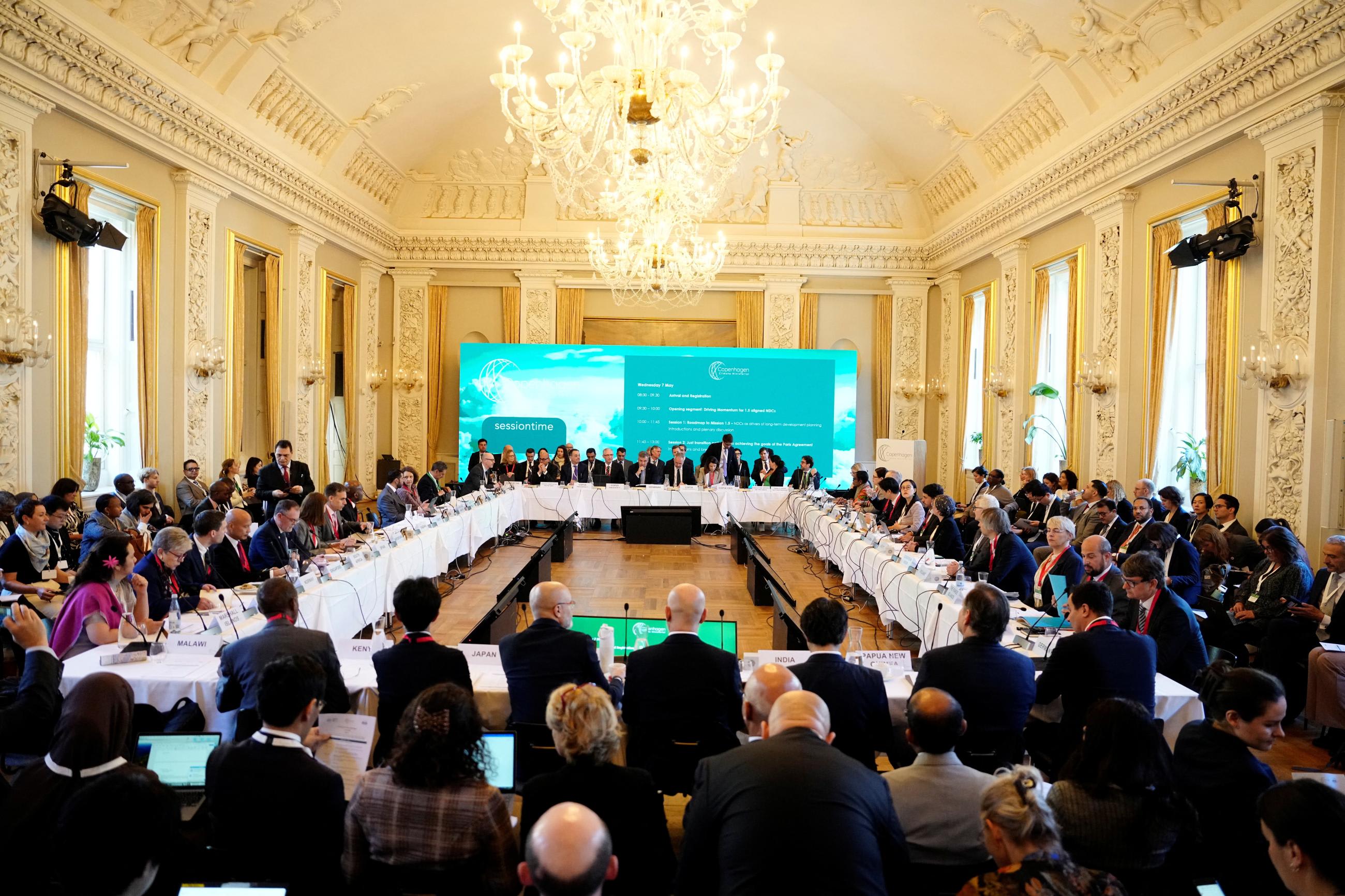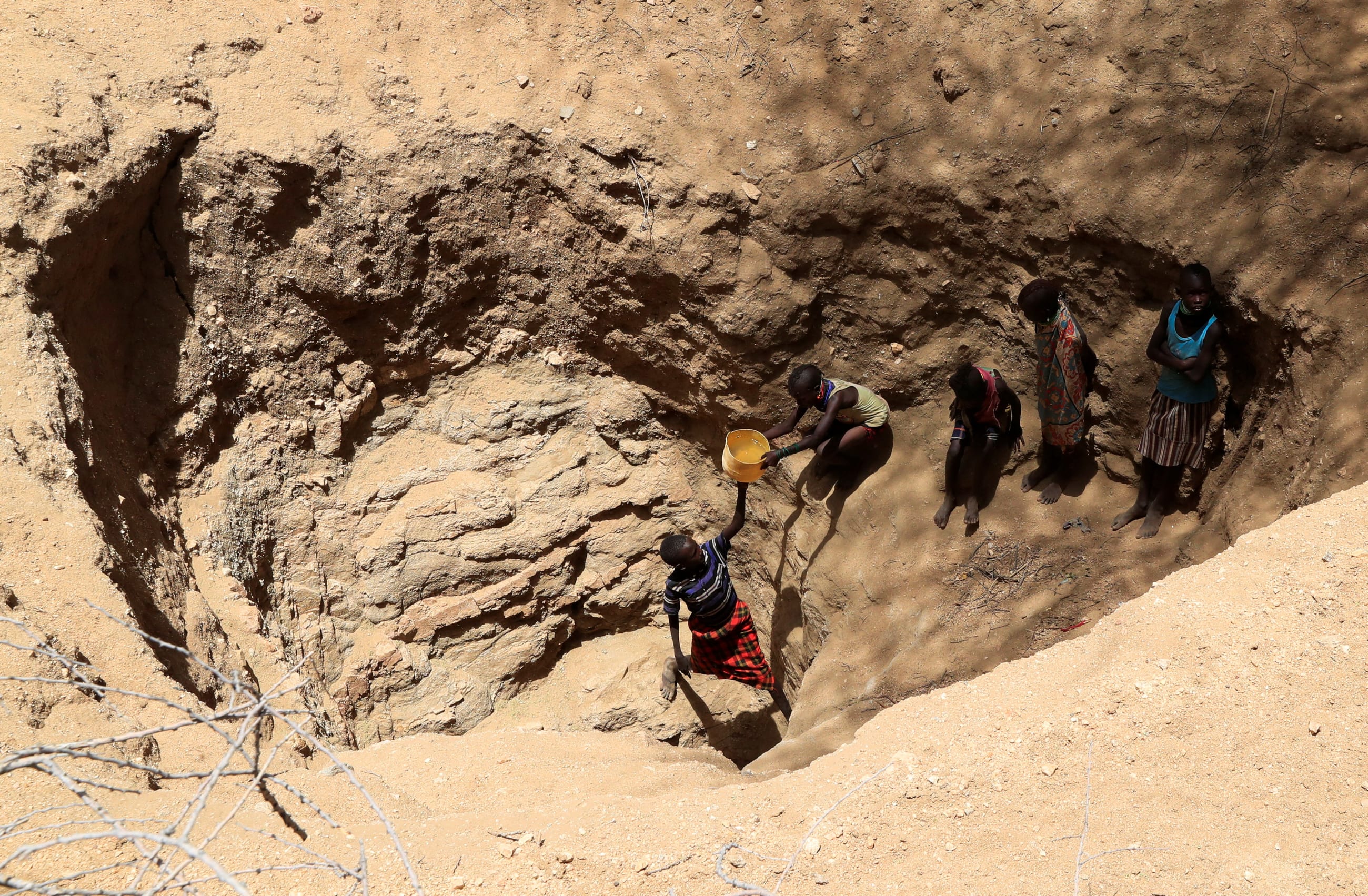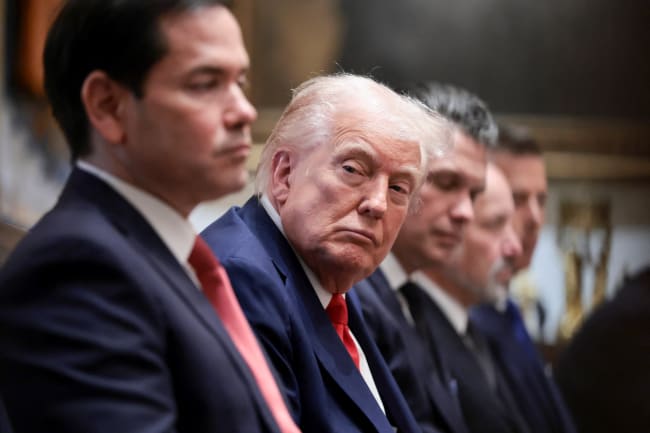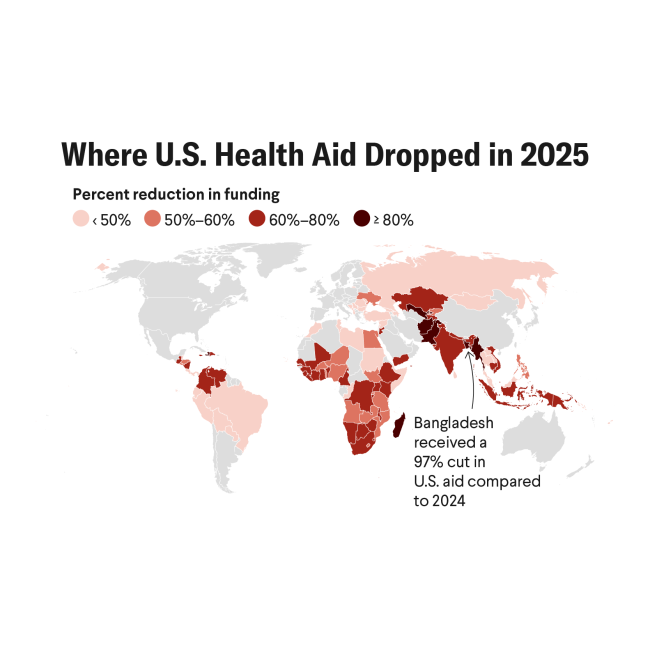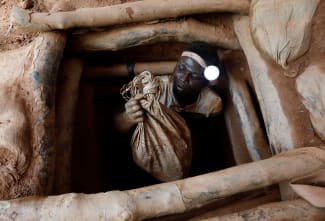As global health leaders gather in Geneva this week for the seventy-eighth annual World Health Assembly, addressing the growing health risks from climate change remains high on the agenda. Ahead of a first round of UN climate talks in June, the gathering provides the first opportunity for Brazil to consult with other countries on its plans to strengthen international collaboration on climate and health at the thirtieth Conference of the Parties (COP30), this November's UN climate summit in the Amazonian city of Belém.
This year, the Brazilian COP30 presidency has an opportunity to shift the health community's contribution to the UN climate talks from rhetoric to a meaningful force for shaping climate policy. Climate change is a health crisis, and establishing a UN dialogue on climate and health can support decision-makers to put health at the heart of climate action.
Health efforts at this year's COP30 follow a watershed moment on climate and health at the 2023 UN climate conference in Dubai (COP28), where 150 nations signed a political declaration during the first dedicated Health Day in three decades of climate talks. Previous COP presidencies have laid the foundations for the growing prominence of global health in climate diplomacy, from an initiative to address the health effects of climate change in island states under Fiji's COP23 presidency in 2019 to the creation of a coalition of countries seeking to build climate-ready health systems under the United Kingdom's COP21 presidency in 2021.
Despite this progress, none of these efforts have managed to place health at the heart of global climate action. Although the health community has made progress in advancing climate action within the health sector, major opportunities to contribute to action in health-determining sectors—such as energy, agriculture, water, and cities—remain untapped.
Keeping communities healthy is by far the most effective way to build societies and economies that can withstand climate shocks
On the other side of the aisle, climate policymakers have made only limited use of health arguments to guide decision-making, even though health outcomes are a powerful tool in uncovering the inequities of climate change given that low-income communities and young people bear the brunt of pollution and extreme weather. Embedding health goals in climate policies can also help ensure that those policies are beneficial for both people and planet. Keeping communities healthy is by far the most effective way to build societies and economies that can withstand climate shocks.
Policymakers can use the health narrative for climate action to navigate geopolitical headwinds, global cuts to climate and development finance, and a resurgence of climate denial and delay in the United States and Europe. Since the 2024 U.S. presidential election, many pro-climate policymakers have started to reframe their advocacy around energy independence, economic security, and the health and socioeconomic benefits of climate action rather than environmental and moral arguments. In a political environment in which climate change policies have become more challenging to pursue, an emphasis on values such as health and security can help maintain momentum and public support.
Making the Health Argument for Climate Action
Thus far, climate COPs have failed to create a mandate for climate policymakers to consider how their actions can protect and promote health.
The UN climate regime currently does not include any dedicated health provisions or processes, yet multiple opportunities to provide a legal basis for more meaningful discussions on climate and health exist.
The UN Framework Convention on Climate Change (UNFCCC) [PDF] calls on countries to mitigate and adapt to climate change "with a view to minimizing adverse effects on the economy, on public health and on the quality of the environment," and the Paris Agreement [PDF] promotes the right to health when taking climate action. The agreement's Global Goal on Adaptation includes a dedicated health target, and the first Global Stocktake [PDF] of progress in 2023 highlighted the right to a clean, healthy, and sustainable environment.
Health organizations such as the Global Climate and Health Alliance and the World Health Organization (WHO) and initiatives such as the Friends of Climate and Health have already mapped out how health could be mainstreamed across the various UNFCCC negotiation streams and processes, ranging from strengthening health adaptation efforts, to addressing the loss and damage to health from climate impacts, to improving health and nutrition outcomes in negotiations on agriculture and food security, to maximizing the health and economic benefits of transitioning away from fossil fuels.
Many countries have also indicated they would be interested in mainstreaming health in their climate policies. In 2023, leaders and vested interests across the African continent developed a Common Position on Climate and Health that called for health to be included in the climate negotiations. The same year, as noted earlier, 150 countries signed the COP28 Declaration on Climate and Health, in which they committed to incorporate health considerations in Paris Agreement processes to help reduce the negative health impacts of climate change.

The Case for a UN Dialogue on Climate and Health
The creation of a dedicated high-level dialogue under the UNFCCC could help bridge the climate and health agendas.
A high-level dialogue on climate and health could provide a dedicated space for health to be discussed at the UN climate negotiations and could enable negotiators identify opportunities for health to be integrated across key areas. Rather than creating yet another standalone negotiation process, this dialogue would be to work within existing climate negotiations, cutting across issue areas and using a health lens to drive more ambitious outcomes.
The dialogue could also create a political and technical mandate for representatives from ministries of health to attend COPs and engage with their counterparts from ministries of climate and environment in a global forum, promoting collaboration between sectors. This kind of exchange has only happened once before, when both ministers of health and environment participated in a ministerial on climate and health that took place during the COP28 Health Day.
The dialogue should also help amplify the voices of the communities and groups most affected, including Indigenous people, small island states, children and youth, and first responders such as the health and humanitarian community. These communities are the most affected by the health risks of climate change, and a concerted effort is needed to help unpack the deep and diverse needs of these intersectional communities.
To ensure continuity with previous efforts, the dialogue could be hosted in coordination with WHO, which already provides climate change support to ministries of health in low- or middle-income countries and has prioritized climate as a top priority in its General Program of Work. The dialogue could also be cohosted by the COP Presidencies Continuity Coalition for Climate and Health, which was formed by five recent COP host countries to ensure that health remains central in the global climate agenda.
If countries were to adopt a decision at COP30 to regularly convene a high-level dialogue on health and climate change, it would be the first opportunity under the UNFCCC Convention to meaningfully consider the implications of climate negotiations on human health and lives. It would provide a forum for international collaboration on climate and health, to help deliver the health- and equity-specific commitments of key UNFCCC decisions and evolving, complex health narratives of responding to loss and damage from climate change. Last, it could also strengthen multilateral coordination, leveraging the work of UN agencies and others already advancing health-centered climate action, and provide a platform for country-led initiatives and coalitions, such as the 95 countries convening under the Alliance for Transformative Action on Climate and Health, the 150 countries committed to the COP28 declaration on climate and health, and the emerging Belém Health Action Plan.
Building on Lessons Learned
The idea of a dedicated dialogue to help prioritize a cross-cutting issue in the UN climate negotiations is not new. The approach has been successfully used to create a regular Ocean and Climate Dialogue, to foster dialogues on the impacts of climate change on children [PDF] and mountains, and to help raise the profile of key issues such as gender and loss and damage.
These efforts can inform the creation of an effective dialogue that leads to meaningful action. For example, the dialogue would need to move beyond speeches to focus on the pragmatic implementation of solutions that support existing UNFCCC processes, as well as the planning and implementation of national climate plans such as nationally determined contributions and national adaptation plans. This would both enable health to be integrated across the existing UNFCCC agenda and national policies and avoid adding more pressure to overstretched country delegations struggling to keep track of an ever-growing list of priorities and agenda items.
The dialogue should also try to avoid getting bogged down in what some negotiators have described as UNFCCC institutionalization, under which issues become politicized and used as bargaining chips in other negotiation streams. To avoid institutional stagnation, the dialogue should embed mechanisms for iterative learning, knowledge exchange, and outcome tracking.
The global health community has previously warned of the risk of health-washing, in which health discussions are co-opted by fossil fuel actors as a distraction from the urgent need to reduce global emissions. The UN can mitigate this situation by developing clear terms of reference that guide the dialogue toward measurable, implementable actions, that include a time-bound structure, and that are both explicitly aligned with key milestones and subject to regular review.
To ensure that the dialogue is successful, genuine concerns will need to be proactively addressed. Its design should be pragmatic, justice centered, and responsive to the political and institutional realities countries are facing.
